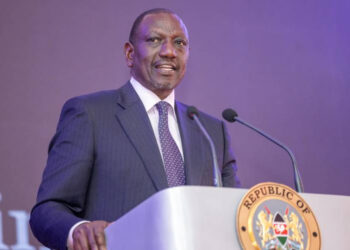The Public Service Cabinet Secretary, Moses Kuria, has recently announced the launch of biometric registrations for all public servants as part of the effort to eliminate ghost workers from the government.
Despite the country’s religious inclinations, the Ministry of Public Service has identified a significant number of ghost workers still on the government’s payroll.
To combat this issue, all of the 900,000 public servants who receive pay from taxpayers, including those in counties, will undergo biometric registration.
The registration process aims to remove those who do not exist or are no longer in service. According to CS Kuria, the country is paying ghost civil servants, teachers, and elderly citizens, and the government is also spending money on ghost students.
Moreover, the Cabinet Secretary has also revealed that a payroll audit is underway to further identify and remove ghost workers, following the Public Service Commission’s (PSC) recent report flagging 19,467 ghost workers from different government departments and agencies.
The PSC attributed the rise in ghost workers to bloated wage bills, underutilization of staff, and strained workplace facilities.
The State House and the New Kenya Cooperative Creameries (KCC) were among the organisations identified as having excess employees.
The biometric registration and the payroll audit are part of the government’s continued efforts to streamline the public service sector and ensure transparency and accountability in its operations.

















